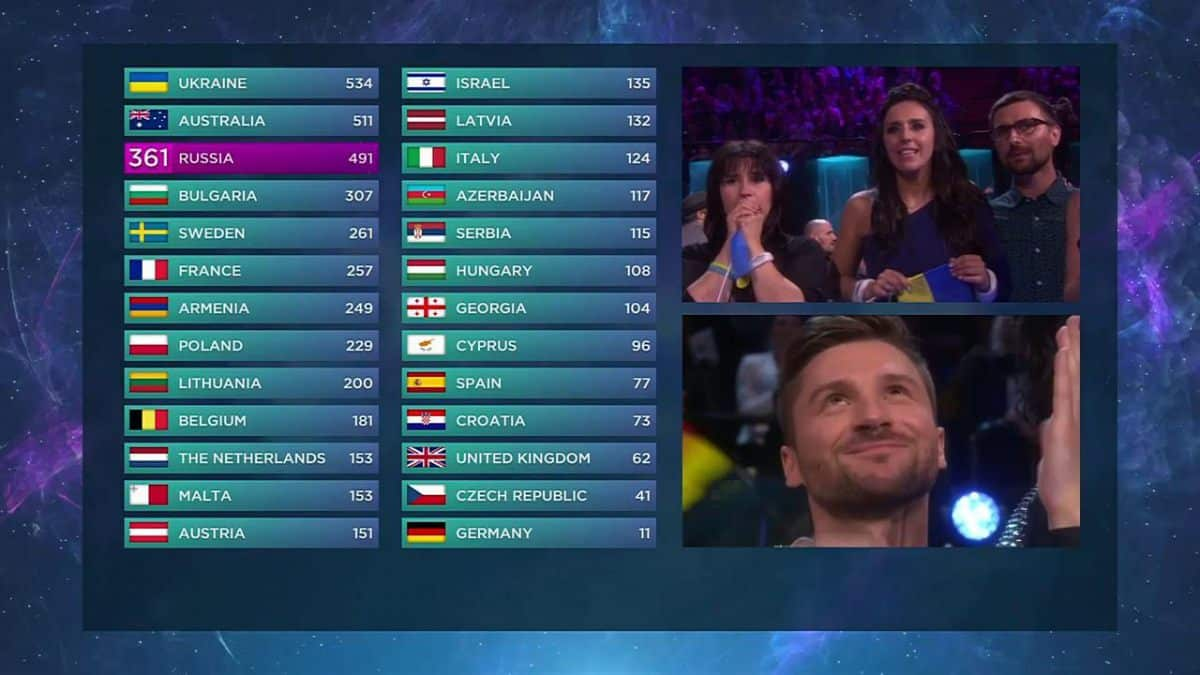It was a thrilling evening at Stockholm’s Globe Arena where Ukraine's Jamala won the top spot at Eurovision 2016 with a total of 534 points for her politically-charged song '1944'.
Australia and our own Dami Im came in SECOND with 511 points.
SBS Managing Director Michael Ebeid said:
“Dami's Grand Final performance was magnificent and against such strong competition we’re so proud that her talent was supported, and acknowledged by the Eurovision community. As newcomers to the competition, finishing second is incredibly humbling and a testament to Dami’s ability to connect with all audiences. Dami is the perfect musical ambassador of modern multicultural Australia, showcasing our country’s creative talents to the world.”
“As the Australian broadcaster of the Eurovision Song Contest for over 30 years, it is the perfect example of the SBS charter in action with its celebration of diversity, culture, and inclusion and we are honoured to have been invited once again to compete.”
This year's new voting system meant it was anyone's guess right up until the last minute, where it seemed Australia was a sure thing after ranking in the top spot according to the Jury vote - only just being knocked out at the last minute by Ukraine.
See the full line-up of total scores below:

Watch the winner Jamala's stunning performance from Semi Final 2 below:
At the start of the contest, it appeared that Ukraine's entry would be the most controversial as the lyrics of the song '1944' actually focus on Joseph Stalin’s mass deportation of 244,000 Crimean Tatars in 1944 – a tragic event that has been equated to genocide by the Ukrainian parliament.
It seems thought that in the end this powerful statement won over audiences who voted in her favour with an incredible 534 points - a combined score from both the juries and the public of every participating country.
How does voting work?
Who hasn't heard about the famous douze points? The voting procedure of the Eurovision Song Contest is legendary and in 2016 there was a radical transformation to the format – the biggest change in 40 years.
In previous years the results of the professional juries and viewers have been presented as a combined result, each accounting for 50 percent of the final score. For 2016, the professional juries and televoters from each country each awarded a separate set of points from 1 to 8, 10 and 12. This means the top 10 countries in both the jury and televote receive points, adding a new level of excitement for hundreds of millions of viewers in Europe and beyond.
After viewers cast their votes by telephone, SMS or using the official app, each national spokesperson from the 42 participating countries were called in to present the points of their professional jury.
Australia’s own jury gave their 12 points to Belgium while the Australian public gave their 12 point to . The points were presented by SBS’s own Lee Lin Chin, who served as the Australian spokesperson for the second year running.
The Australian jury was made up of Monica Trapaga, Shannon Noll Myf Warhurst, James Mathison and Craig Porteils.
It’s not yet certain whether Australia will return for Eurovision 2017, as we would need to receive a invitation from next year’s host country, and this is unlikely to be confirmed for some time.
Regardless of our participation in next year’s contest, SBS plans to develop an Asia-Pacific version of the contest after earlier this year securing an exclusive option to develop the Eurovision Song Contest in Asia.
So stand by for even bigger, brighter and more glittery things to come!
Relive the Grand Final and Ukraine's triumph in pictures below:
